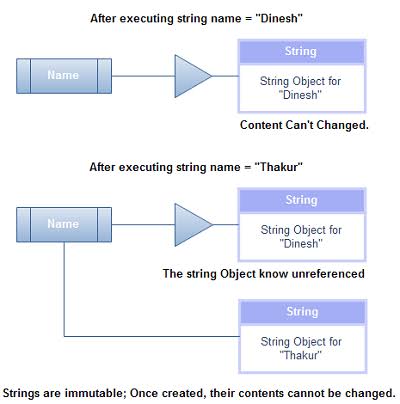Why Are Strings Immutable in Java? Finest Practices and Usage Cases
Wiki Article
What Is Immutable Strings and Exactly How It Works
In the world of shows, comprehending the concept of unalterable strings is paramount for producing protected and robust applications. Immutable strings refer to strings that can not be changed after they are created, making sure information integrity and predictability within the code.The Basics of Unalterable Strings
Immutable strings, as a basic idea in programming, are personality series that can not be changed when they are produced. This suggests that when a string is assigned a value, that value can not be modified. In languages like Python and Java, strings are immutable things, bring about various ramifications in regards to memory management and data honesty.One of the vital benefits of immutable strings is that they provide a complacency in data manipulation. Considering that the web content of an immutable string can not be changed, it ensures that the initial data stays intact, decreasing the threat of unintended adjustments throughout program implementation (Why are strings immutable in Java?). This building likewise streamlines debugging processes, as programmers can rely on that when a string is defined, its worth will not be unintentionally modified
When a brand-new string is produced based on an existing one, instead than modifying the initial string, the new worth is saved independently. Overall, understanding the basics of unalterable strings is important for grasping shows concepts and maximizing code efficiency.
Benefits of Immutable Strings
Structure upon the safety and effectiveness benefits of immutable strings, their benefits reach boosting code reliability and streamlining simultaneous programming tasks. By being unalterable, strings can not be modified after production, which gets rid of the threat of unplanned adjustments in the information they save. This intrinsic immutability ensures that as soon as a string is developed, its value stays continuous throughout the program's implementation, reducing the opportunities of bugs triggered by unforeseen changes.In addition, unalterable strings add to code reliability by making it less complicated to reason about the state of a program. Given that strings can not be changed, developers can rely on that a string will constantly hold the very same worth, simplifying debugging and upkeep efforts. This predictability results in extra stable and reliable codebases.

Implementation in Programs Languages
Within various programming languages, the consolidation of unalterable strings is a fundamental element that influences exactly how information is managed and controlled within code structures. The execution of immutable strings differs throughout different programming languages, with each language supplying its very own devices to sustain this principle.

In contrast, languages like C and C++ do not have built-in assistance for unalterable strings. Developers in these languages need to by hand implement immutability by imposing policies within their code to stop direct adjustments to string objects.
Finest Practices for Collaborating With Immutable Strings
When dealing with unalterable strings in shows languages like Java and Python, sticking to ideal methods guarantees effective and protected information control. Among the key ideal practices is to make use of StringBuilder or StringBuffer as opposed to directly controling strings, particularly when handling considerable concatenation procedures. These courses supply mutable choices for string control, aiding to avoid unnecessary memory allocations and improving efficiency.Additionally, when Click Here working with sensitive data such as passwords or API keys, it is essential to i loved this avoid keeping them as ordinary text in unalterable strings. Using secure storage space mechanisms like char varieties or specialized libraries for dealing with delicate information assists minimize protection dangers linked with unalterable strings.
Real-world Applications and Instances
Discovering sensible implementations of immutable strings in numerous markets reveals their considerable effect on information stability and system integrity. In the medical care sector, unalterable strings play an important function in ensuring the safety and security and privacy of client data. By stopping unauthorized modifications to delicate info such as medical documents and prescriptions, immutable strings assist keep conformity with strict privacy guidelines like HIPAA.Economic institutions likewise profit from the immutable nature of strings to improve the safety and security of customer data and deal documents. Unalterable strings aid prevent fraudulence and unapproved modifications to economic info, providing a durable protection against cyber dangers and making certain the count on and self-confidence of clients.

Verdict
Ideal methods for functioning with immutable strings include avoiding straight modifications and making use of approaches that return brand-new string objects. Real-world applications of immutable strings include data encryption, caching, and string manipulation jobs.Unalterable strings refer to strings that can not be changed after they are developed, ensuring data integrity and predictability within the code. When a new More hints string is produced based on an existing one, instead than changing the initial string, the new worth is saved separately.In languages like Java and Python, strings are immutable by default, meaning that when a string object is created, its value can not be transformed - Why are strings immutable in Java?. Finest techniques for functioning with unalterable strings consist of avoiding straight adjustments and making use of techniques that return brand-new string things. Real-world applications of unalterable strings include data encryption, caching, and string control jobs
Report this wiki page